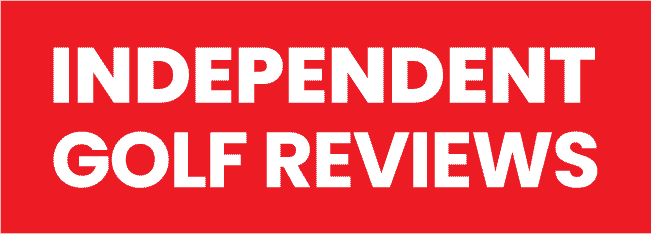- Updated: December 20, 2022
Why Do Golfers Yell FORE!
Golfers yell FORE to indicate to other people that there is an incoming ball heading in their direction.
The true origin of the term “fore“ relating to golf has been heavily debated throughout history and will most likely continue to be discussed for a long time to come.
There are three theories that stand out…

Theory #1 For Shouting "FORE!"
One popular theory for yelling “fore” is actually derived from the word “forecaddie.”
The United States Golf Association (USGA) defines a “forecaddie” as someone employed by the golf course or a player to watch where each golf ball falls.
The aforementioned forecaddie’s role was (and still is in some instances) to wait where the ball lands most frequently, giving the caddies the best line of sight to each golf ball and allowing the players to reduce their number of lost balls during a round.
Due to the distance gap between the players and the forecaddies, players would shout “Forecaddie!” to alert the caddies a ball was coming in their direction and that they should pay attention to where it lands.
Over time, it is thought that the term has shortened to “Fore,” resulting in what we now use in the modern game of golf.
Forecaddies are still used in tournament golf, but they now go under a new name.
You’ll often hear the PGA Tour broadcast refer to the “spotters,” who have the same job as the forecaddies from long ago, just different titles. We’ll touch on the “new” forecaddies later.
Theory #2 For Yelling "FORE!"
Artillery men of the olden days would shout “Beware Before!” as a warning to nearby soldiers to drop to the ground before friendly gunfire.
“Beware Before” is quite a mouthful on the front lines of war, so it is understandable to shorten the phrase to just the word “Fore!”
Theory #3 For Screaming "FORE!"
The prefix “fore” has roots and history dating back to the Middle Ages.
It’s commonly understood that the game of golf originated in Scotland.
In Scottish, “fore” is a word that is short for “before.” However, in old Scottish, “fore” was used as a warning message.
It meant “lookout ahead,” which is why many believe that the term fore in golf originated in old Scotland.
When Should You Yell "Fore"?
Out of respect to the other golfers on the course, if a bad shot has even a slight chance of hitting another player or spectator, it is the golfer’s responsibility as a player to shout “FORE” as loudly as they can.
Golf itself is described as a “gentlemen’s game. “
Choosing to yell fore can “cover you” in a situation where (God forbid) you do hit another player, at least you did your part in warning them first.
With enough rounds under your belt, shouting “fore” will become an immediate reaction.
Additional good etiquette to follow is shouting “Fore Left!” or “Fore Right!” as a better indication as to where the ball is going for other golfers or spectators.
How Bad Is It To NOT Yell "FORE"?
One of the first rules taught to young golfers about “proper golf etiquette” is always to yell “FORE!” anytime your errant shot could potentially hit someone.
With this being such a universal rule and golf term, players take pretty great offense to someone choosing to stay silent when a wayward shot could hit someone.
Many golfers who took up the game later in life are too concerned with the opinions of other players and feel too much shame to yell fore.
One golfer took such offense to his friend not shouting “fore,” that he sued him!
A New York State court of appeals ruled Anoop Kapoor could not be held liable to Azad Anand for ignoring one of the “universally recognized” customs of golf before he shanked a ball into Anand’s left eye.
Anand was blinded as a result of his former friend not shouting fore, and a friendship was lost “fore” ever! (I shouldn’t joke about it, but it’s too good)
Why Do Professionals Get Away With Not Yelling "FORE!"
Pro golfers will yell fore occasionally but often don’t say anything after a bad tee shot.
They’ll sometimes point in the direction of their wayward shot, indicating to the “spotters” we referenced earlier the area their poor shot is headed.
Spotters are usually volunteers that live in the area of the tournament and pay to participate. They are not perfect at warning spectators of the potentially dangerous golf ball coming at their heads.
Below is a video showing some spectators who were unlucky enough to find themselves out of earshot of the spotters or just weren’t paying attention at the wrong time.
Interestingly, it isn’t until four minutes into the compilation before Phil Mickelson yells fore.
What Are You Supposed To Do When You Hear "FORE!"
If you hear “FORE!” your immediate reaction should be to cover whatever you value the most (eyes, face, head, etc.) with your arms and hands and often ducking down to protect yourself further.
A golf shot itself lasts for a few seconds at a time, so stopping what you’re doing and protecting yourself shouldn’t disturb your round too much.
Awareness is crucial to golf in every aspect if you’ve chosen to take it seriously.
About The Author
Writers of Independent Golf Reviews
Independent Golf Reviews has tested and reviewed 1000+ golf products over the past 10 years. We use our experience and expertise to give golfers an unbiased insight on the market.
Read more…
Share
Receive the best golf discounts available exclusively for our subscribers and be auto entered into our monthly golf giveaways!
Success!⛳️
You are now an official member of IGR. Keep an eye out for the perks.
No spam, ever. 🔒

